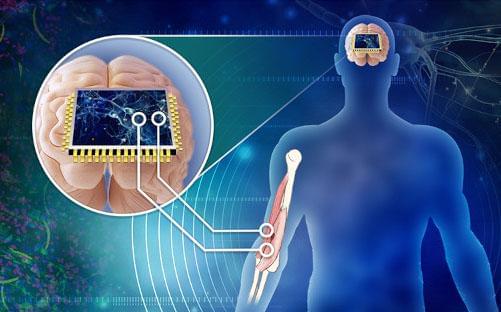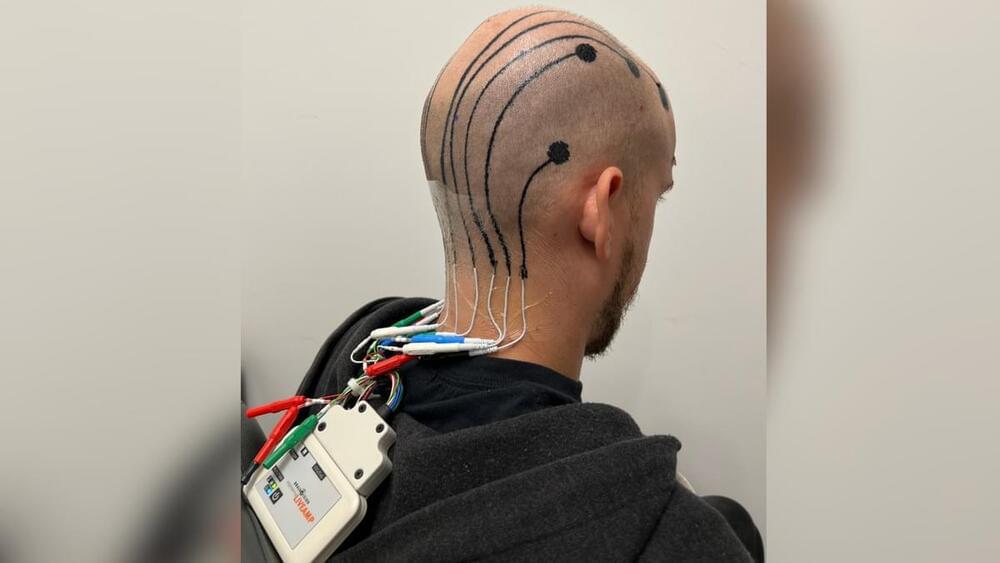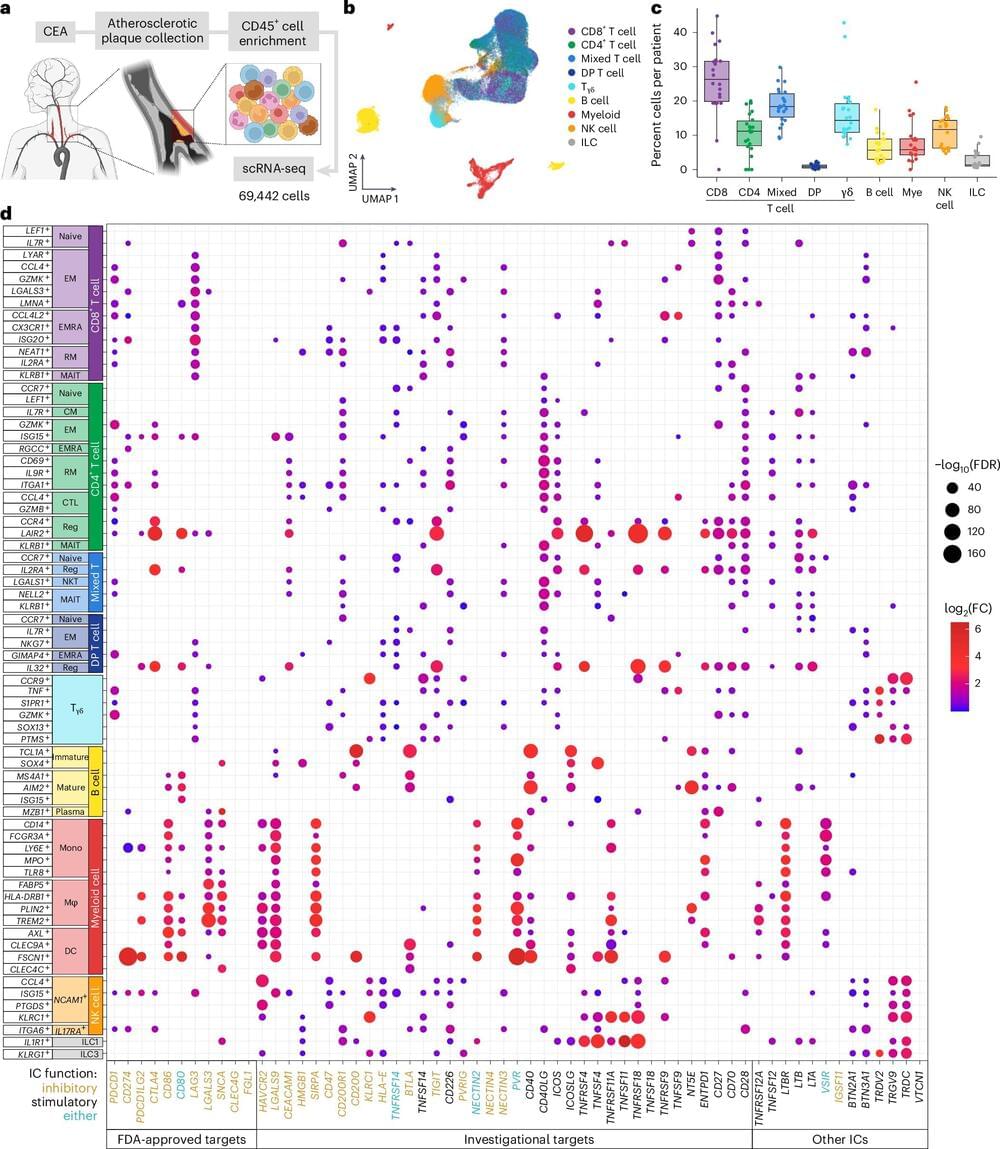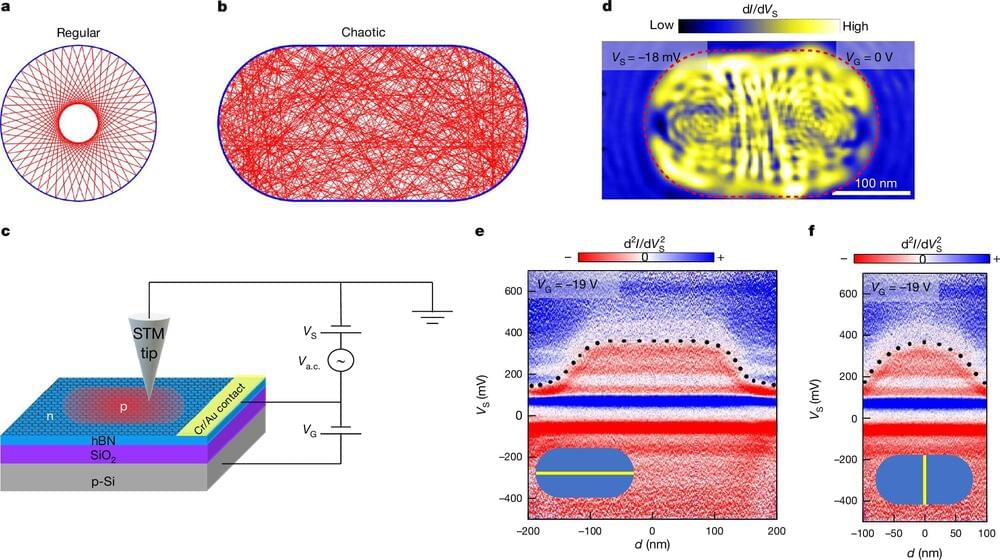The NSF is funding exploration of a new frontier with organoid research.




During an EEG test, technicians normally use rulers and pencils to mark up a person’s head before gluing electrodes across the scalp. These electrodes are then connected via long wires to a machine that records brain activity. Alternatively, a cap with electrodes can be directly placed on the head.
However, this whole process is time-consuming and inconvenient, say the developers of the new technology. It generally takes around one to two hours to set up an EEG test, said co-developer Nanshu Lu, a professor of engineering at the University of Texas at Austin. The electrodes then need to be monitored about every two hours because the glue that attaches them to the scalp dries up, she told Live Science in an email.

A new study from The Hospital for Sick Children (SickKids) and Institut Curie reveals how stem cells sense and respond to their environment, with implications for inflammatory bowel disease and colorectal cancer.
Stem cells constantly adapt to their environment to maintain organ and tissue health, informed by chemical signals and physical forces. When they do not function as intended, stem cells can result in a number of health conditions including inflammatory bowel disease (IBD) and colorectal (bowel) cancer, where they continue to divide until a tumor forms.
Until now, how stem cells sense the physical forces around them has remained unclear, but novel findings published in Science led by Dr. Meryem Baghdadi, a former SickKids postdoctoral researcher, Dr. Tae-Hee Kim at SickKids and Dr. Danijela Vignjevic at Institut Curie, has revealed that stem cells depend on two ion channels, called PIEZO1 and PIEZO2, for their survival.

A cancer therapy that prompts the body’s immune defenses against viruses and bacteria to attack tumors can make patients more vulnerable to heart attack and stroke. A possible explanation for this side effect is that the treatment interferes with immune regulation in the heart’s largest blood vessels, a new study suggests.
Led by researchers at NYU Langone Health and its Perlmutter Cancer Center, the new work focused on a potent class of cancer-fighting drugs called immune checkpoint inhibitors. These medications work by blocking molecules embedded on the surface of cells—immune checkpoints—which normally serve as “brake pedals” that prevent excess immune activity, or inflammation. Some tumors are known to hijack these checkpoints to weaken the body’s defenses, so by blocking the checkpoints, the treatments enable the immune system to kill tumor cells.
However, this treatment type may also trigger damaging levels of inflammation in the heart, brain, stomach, and other organs, the researchers say. For example, past studies have shown that about 10% of those with atherosclerosis, the buildup of hardened fatty deposits (plaques) within artery walls, have a heart attack or stroke following cancer treatment. However, the specific mechanisms behind this issue had until now remained unclear.
Cure-Focused Diabetes Research — Michael Burton & Prof. Matthias von Herrath — Diabetes Research Institute Foundation.
Michael J. Burton is the CEO of the Diabetes Research Institute Foundation (https://diabetesresearch.org/), a philanthropic organization which funds the Diabetes Research Institute, one of the largest and most comprehensive research centers dedicated to curing diabetes.
A passionate nonprofit executive, Michael has more than 30 years of experience in leading high-impact philanthropic programs and cultivating strategic relationships to secure transformative funding. Prior to assuming the role of CEO at DRIF, Michael advanced the missions of some of the nation’s most dynamic and trusted institutions including Princeton University, The Pew Charitable Trusts and the American Association for Cancer Research (AACR).
Michael’s accomplished nonprofit career includes significant contributions in the advancement of cancer research and care, most recently as President and CEO of Gateway for Cancer Research, a Chicago-based nonprofit engaged in funding early phase clinical research, where he began his tenure as Chief Development Officer. Prior to that, Michael served as Chief Development Officer and Executive Director of the Foundation at the AACR, the nation’s oldest and largest organization dedicated to the prevention and cure of all cancers. Michael’s 15 years of experience in the oncology sector also includes leading the development program at Fox Chase Cancer Center as Senior Vice President and Chief Development Officer.
Before working in the field of oncology, Michael had a distinguished career in higher education, most notably at the University of Pennsylvania, where he served as Special Assistant to the President during the tenure of Judith Rodin, the first female president of an Ivy League institution; and at Temple University, where he held the title of Assistant Dean and lead the development program at the Fox School of Business. Before entering higher education, Michael served as Legislative and Press Assistant to the late Congressman Tom Lantos, the only survivor of the Holocaust ever elected to Congress.



Summary: Researchers identified specific plant compounds that provide antioxidant and neuroprotective effects, contributing to brain health beyond basic nutrition. By analyzing plant-based foods like lemon balm, sage, and elderberry, scientists linked compounds such as phenolics and terpenes to benefits like reducing oxidative stress and scavenging harmful reactive species.
Quercetin-rich foods, such as Queen Garnet plum and clove, showed strong potential to prevent neuron-like cell damage. This study sheds light on how plant-based diets and supplements could support brain health and manage neuroinflammation-related conditions.

Unveiling Quantum Scars: A Window into Chaos in Graphene Quantum Dots.
In the realm of quantum physics, certain phenomena challenge our understanding of chaos and order.
Patterns in chaos have been proven, in the incredibly tiny quantum realm, by an international team co-led by UC Santa Cruz physicist Jairo Velasco, Jr. In a new paper published on November 27 in Nature, the researchers detail an experiment that confirms a theory first put forth 40 years ago stating that electrons confined in quantum space would move along common paths rather than producing a chaotic jumble of trajectories.
Electrons exhibit both particle and wave-like properties—they don’t simply roll like a ball. Electrons behave in ways that are often counterintuitive, and under certain conditions, their waves can interfere with each other in a way that concentrates their movement into certain patterns. The physicists call these common paths “unique closed orbits.”
Achieving this in Velasco’s lab required an intricate combination of advanced imaging techniques and precise control over electron behavior within graphene, a material widely used in research because its unique properties and two-dimensional structure make it ideal for observing quantum effects.